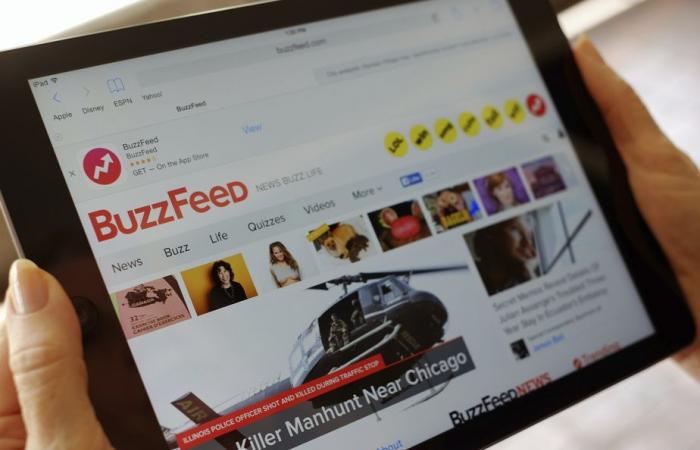Trafficit’s the story of a rivalry between digital media groups, to see who would attract the most clicks, views, likes, shares, comments and… complaints! In chronicling the quest for power of Gawker, HuffPost and BuzzFeed, author Ben Smith reveals the secrets of those who conspired to invent virality on the Internet.
Published at 10:00 a.m.
Myriam Jézéquel
Editor, Gestion HEC Montréal *
Online traffic is a major issue for businesses in general and for the media in particular. Behind him all kinds of influences and manipulations are at play. The book’s protagonists, whom the author calls “geniuses,” are Nick Denton, the founder of Gawker Media, and Jonah Peretti, the entrepreneur who founded HuffPost and BuzzFeed, and who is also Smith’s former employer. Why did the media they created decline after a meteoric rise?
The traffic war
At the time of writing TrafficBen Smith writes a column in the New York Times.
He is editor-in-chief of Semafor, a global news site, after serving as the founding editor-in-chief of BuzzFeed News for eight years. Like influencers, these digital media attribute the value of their brand to the attention generated by their content.
The story begins in 2001 with Jonah Peretti, who wants to control the internet by mastering this tool which is used for traffic. As for Nick Denton, he managed a whole network of different blogs based on the principle that ideas can be monetized through traffic. Their genius, according to the author, is to have observed things that no one else had seen before them.
Control the internet ?
“We were inventing digital media,” enthuses Smith. But what do these people actually claim to have? invented ? A way of “measuring culture”, this resulting from the success of jokes or the indignation they arouse.
What talent did these people have? Jonah Peretti knew, for example, how to direct and redirect waves of online influence and determine whether all that traffic should—or could—be put into the service of activism, politics, business, or just fun. To solve the Huffington Post’s traffic problems, he created the Skunk Works laboratory to study viral behavior online. As for Nick Denton, he has built a reputation as an editorial pioneer. He founded Gawker Media by integrating the feminist site Jezebel, the Beltway site Wonkette and the sports site Deadspin.
One-off or lasting success?
The two protagonists did not share the same vision of traffic. “Denton looked for consistent numbers over time that were a sign of editorial quality and community of readers. Peretti was looking for one-off successes, without worrying about taste, quality, brand or consistency, but with an acute awareness of the emotional reaction of Internet users,” emphasizes the author.
The great illusion
Ultimately, the big illusion was imagining that traffic would have real value, like digital oil, through increased views and ad sales. “The problem is that goods are defined by scarcity and traffic has proven to be unlimited. The companies that have really refined sales are Google and Facebook,” concludes Ben Smith.
*This article is published thanks to a partnership with the magazine Management HEC Montrealwhere it first appeared.
Traffic: Genius, Rivalry, and Delusion in the Billion-Dollar Race to Go Viral
Ben Smith
Penguin Press
352 pages







